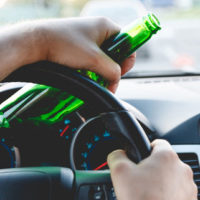Charges Filed In Alcohol-Related Crash

Almost a year after the fatal crash, authorities formally charged a Port St. Lucie woman with DUI manslaughter.
In May 2016, a 29-year-old woman had a BAC over twice the legal limit, as well as traces of marijuana and Diazepam in her system, when she apparently lost control of her car; according to witnesses, the car spun around several times before slamming into a concrete utility pole.
The woman’s passenger was declared dead at the scene.
Criminal vs. Civil Liability
Under the DUI law, prosecutors can prove guilt by establishing alcohol or drug impairment. Such evidence normally comes from the driver’s performance on field sobriety tests, like the one-leg stand and heel-to-toe walk. Alternatively, in alcohol-only cases, there is a per se section in the law which states that drivers are automatically guilty if they have a BAC above the legal limit, which is normally .08.
Prosecutors must establish guilt beyond a reasonable doubt, which in Florida means that the jurors must have an “abiding conviction of guilt” as opposed to “one which wavers and vacillates.”
The process is roughly the same in civil court. Some plaintiffs prove impairment by circumstantial evidence, such as FST performance or even on lesser evidence, such as:
- Previous stop (e.g. the negligent driver had just left a bar or someplace that serves alcohol),
- Erratic driving, or
- Bloodshot eyes.
It is a well-established fact that alcohol impairment starts with the first drink, and so if the tortfeasor (negligent driver) was impaired by alcohol, the plaintiff usually does not need to produce any more evidence on this point and the judge may not even allow it.
Drug-related impairment cases work a little differently. In addition to proving that the tortfeasor was under the influence of a prohibited substance (this evidence normally comes from a blood test), the plaintiff must prove that this substance impaired driving. For example, the research on marijuana is decidedly mixed, and the plaintiff must convince the jury that marijuana is an impairing substance.
In civil court, the plaintiff must only prove these points by a preponderance of the evidence (more likely than not).
Additionally, if the tortfeasor was charged with DUI, the negligence per se shortcut may apply. Just like drivers are guilty as a matter of law if their BAC is above the legal limit, in Florida, tortfeasors are negligent as a matter of law if they violated a safety law and that violation caused the victim’s damages. In other words, there is no need to prove duty or breach.
Disputing Liability
In passenger injury cases, like the one in the above story, the insurance company often tries to use the assumption of the risk defense, which is:
- The voluntary assumption of
- A known risk.
The theory is that if a passenger gets in the car with an impaired driver, the passenger is aware of the risk and therefore the driver is not responsible for damages. So, the insurance company must prove that the victim chose to get in the car (for example, the victim had other ways to get home but disregarded them) and that the victim knew the tortfeasor was too drunk or high to drive.
Reach Out to Aggressive Attorneys
Impaired drivers often cause serious injuries. For a free consultation with an experienced personal injury lawyer in Port St. Lucie, contact Eighmie Law Firm, P.A. We do not charge upfront legal fees in most negligence cases.
Resource:
wptv.com/news/region-c-palm-beach-county/west-palm-beach/woman-charged-with-dui-manslaughter-in-crash-that-killed-her-passenger


